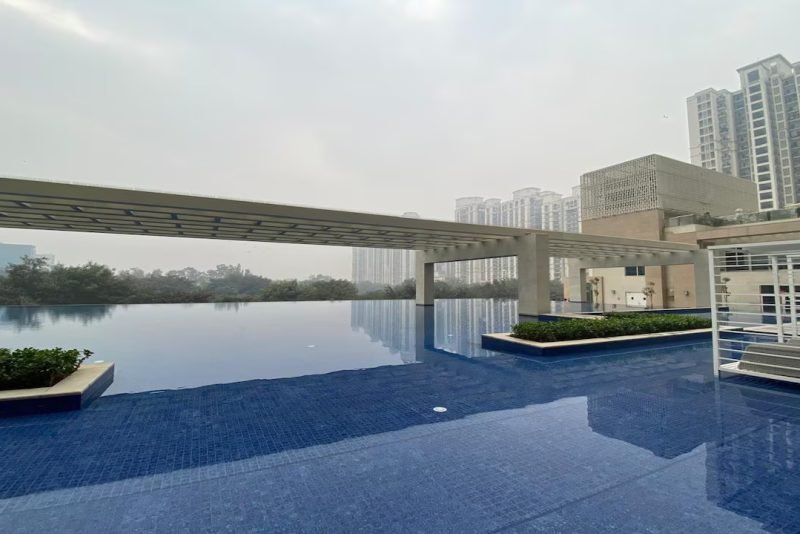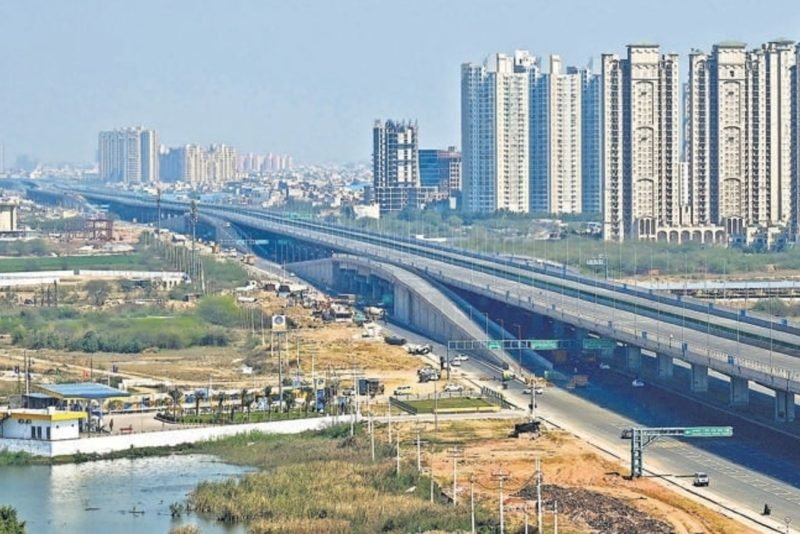Carpooling to office, switching from cabs to metro, skipping weekend outings, fewer impulse purchases – the swift upswing in housing rentals in the NCR cities has got the salaried middle class redoing its maths.
Driving this steep rise is the gradual rollback of the work-from-home policy and a reduction in the inventory available for lease with housing units lying empty filling up since the pandemic struck in 2020 because many original owners moved in.
Compared with 2019, rentals across NCR have shot up this year, in some areas by 50-60%. Rajan Gupta, who works in a Gurgaon-based IT company, shells out Rs 50,000 in rent for a 3BHK apartment in Sector 65. Just two and a half years ago, he was paying Rs 32,000 for a similar 1,500sqft flat in the same locality.
For two years, Gupta, like lakhs of people who hold corporate jobs in NCR in software, financial, banking, industrial and other sectors, returned to his hometown when his company offered WFH during the pandemic. With companies calling their employees back to office this year, the rental market boomed. “My wife and I had to rework our expenses completely to manage the household,” Gupta said.
Noida resident Ankit Tiwari faced what many have this year – rent correction demands from brokers or landlords. Ankit Tiwari’s rent, a a sresult of the renegotiation, went up by 33% for his 1,000 sqft 2BHK flat in Sector 150 – from Rs 21,000 to Rs 28,000.
The ‘take-it-or-leave-it’ offer have left many like him flustered. “I am looking for a cheaper option. The problem is, houses that are within my budget are farther from my office,” he said.
A teacher, Rakesh Jha, who lives in Antriksh Golf View 2 in Noida’s Sector 78, said his salary hasn’t increased as much in two and a half years as the rent for his 2BHK flat. In 2018, Jha was paying Rs 14,000 per month, excluding maintenance. “Today, I’m shelling out Rs 24,000 per month. A 10% annual hike in rent is common and manageable, but this is steep by all definitions,” Jha said.
In Ghaziabad, the Delhi-Meerut Expressway and the RapidX corridor have put wind in the sails of the trans-Hindon townships, which, like Noida, were till a few years ago affordable alternatives to East Delhi with newer and spacious houses in modern societies. Across localities, Indirapuram, Vaishali and Vasundhara have seen rents rise by 25-30% on an average.
Those with a lower base have seen an even higher increase. Anveesh Kumar Jha, president of Angel Mercury in Indirapuram, said flat owners who would charge around Rs 14,000-16,000 in rent about three to four years ago, are now asking for Rs 18,000 to Rs 25,000.
The RapidX corridor and better connectivity with Delhi because of the Hindon Elevated Road have also pushed up rents in Raj Nagar Extension, Ghaziabad’s other large hub for housing. Available for Rs 10,000-12,000 before the pandemic, a good 2BHK is now Rs 15,000 on an average, depending on the society and amenities available.
In Gurgaon, Golf Course Road Extension has seen the steepest increase in housing rentals, of around 40%. In 2020, the average rental for a 3BHK flat was around Rs 35,000, which now stands at around Rs 50,000. It is followed by Golf Course Road, where the average rental for a similar flat has gone up from Rs 70,000 to Rs 90,000 in three years.
In Noida, the average rentals in top micro markets are up by 11-34% in the last three years. Sector 93 saw the maximum increase in house rents at 34% followed by Sector 128 with 31%.
Akashdeep Singhal, director of SNJ Realty International, a Noida-based real estate agency, said, “The rent for a 2BHK flat starts from around Rs 20,000 and can vary based on the locality and amenities. If you opt for a study room, it will add an additional cost of Rs 3,000 to Rs 5,000. People interested in 3BHK apartments have to shell out Rs 27,000 or more, while a 4BHK will cost Rs 45,000 or more.”
“The surge in rentals is driven by a resurgent demand on the back of offices re-establishing normal in-office work. And as things stand now, the demand for rented accommodation will continue to head northward,” said Anuj Puri, the chairman of real estate consultancy firm Anarock.
According to Anarock, key residential rental hotspots across the country have seen up to 25% increase in average monthly rentals compared to 2019. While Hyderabad’s Jubilee Hills witnessed a 17% jump in rentals – from Rs 54,000 per month in 2019 to Rs 63,000 per month in 2022 – Mumbai’s Worli logged a rental increase of 16% in the period -Rs 2.05 lakh per month in 2019 to Rs 2.4 lakh per month in 2022.
Bengaluru’s Rajaji Nagar saw a 16% rise in average monthly rental values for luxury homes – from Rs 56,000 per month in 2019 to Rs 65,000 per month in 2022.
A recent joint report by Credai, Colliers and Liases Foras underlined after the pandemic receded, the resumption of full office hours and new hiring trends increased demand not only for new housing but also rental housing in NCR.
“As property prices and home loan interest rates rise, the overall cost of property acquisition also increases. This, in turn, has pushed back property purchase plans, and therefore, spurred demand for rental homes,” Shashi Kant, a real estate analyst in Gurgaon, said.
Rahul Purohit, national sales head of Square Yards, said, “Landlords are making best use of the demand-supply mismatch and making up for the losses accrued during the pandemic by demanding 30-40% more.”
Industry watcher Sachin Gawri, founder and CEO of Rise Infra, said the surge in housing rentals in Gurgaon and Noida can be partially attributed to the slowdown in new housing supply. “The scarcity of supply and rising demand inevitably resulted in a boom in the rental market,” he said.
Source : TOI





